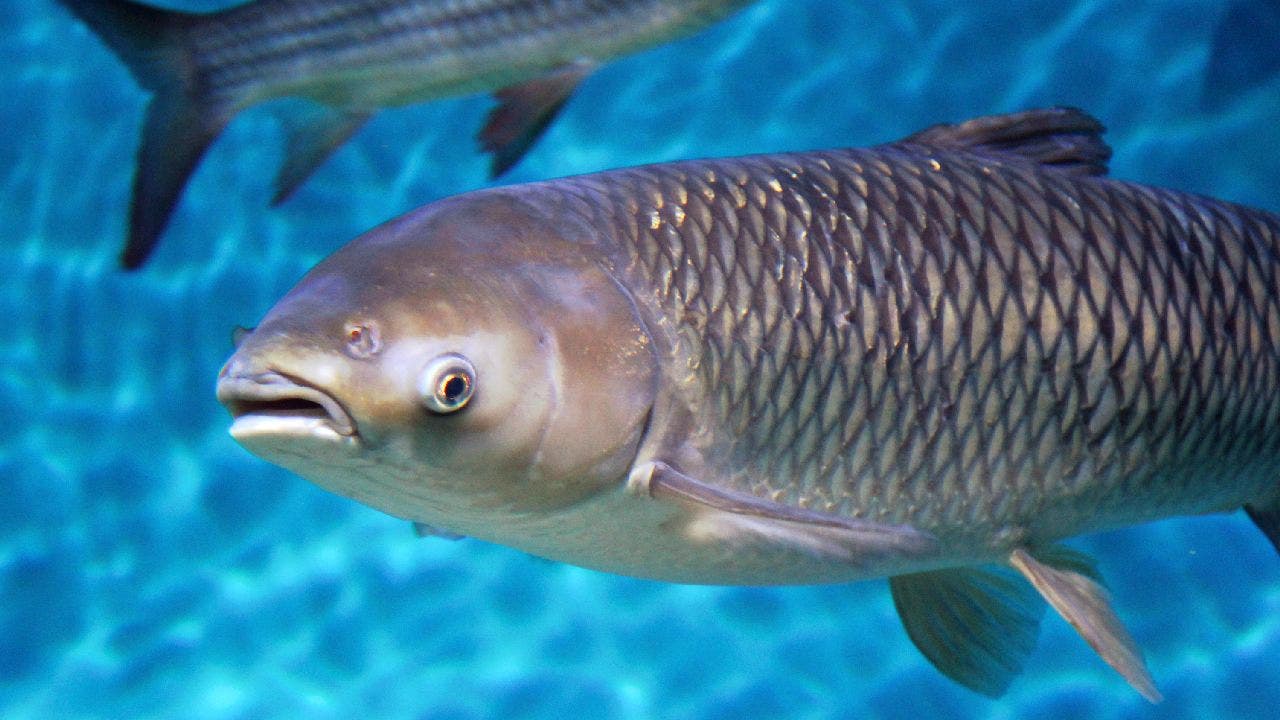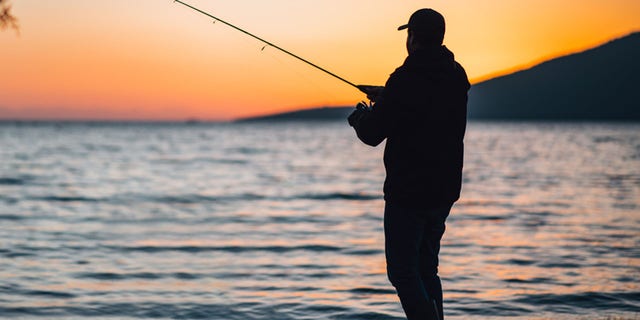Oklahoma authorities ask fishing guides to remove an invasive species from state waters: ‘Do not return it’

The Oklahoma Department of Wildlife Conservation (ODWC) wants anglers to know that there’s an invasive carp species that needs to be removed from state waters.
On Wednesday, March 29, the agency shared a Facebook post announcing that fisheries biologists have asked Oklahoma-based fishing guides to remove bighead carp from the state’s Grand Lake system, which is located in Northeast Oklahoma within the Ozark Mountain Range.
The ODWC highlighted two fishermen from the High Water Guide Service as an example and noted that the pair caught a 63.7-pound bighead carp from the Grand Lake system.
IDAHO FISHERMAN CATCHES RECORD PIKE WEIGHING NEARLY 41 POUNDS: ‘NEEDED TO FIND A BIGGER SCALE’
In a photo attached to the post, the red-scaled male carp appears to be wider than both guides’ shoulders.
“They’ve gotten us a few now and we simply can’t appreciate it enough,” the ODWC wrote in reference to High Water Guide Service.
“Bighead carp captured out of this system will be used for ongoing research on this population,” the agency continued in the post. “If you find a bighead carp in the Grand Lake system, DO NOT RETURN IT BACK INTO THE WATER.”
Bighead carp is a freshwater fish species that are native to East Asia. The species was “imported for aquaculture and for phytoplankton control” but it’s still considered an invasive species in American waters, according to the U.S. Department of Agriculture’s National Invasive Species Information Center.
The Grand Lake system shoreline is approximately 1,300 miles. It’s a popular destination for fishing, boating and parasailing.
OKLAHOMA POLICE REUNITE WOLFDOG WITH OWNER: ‘LIKE A CUDDLY PUPPY’
Noninvasive fish species that live in the Grand Lake system include largemouth bass, black and white crappie, paddlefish, white bass, striped hybrid bass, channel catfish, blue catfish and flathead catfish, according to the ODWC.
The ODWC has requested that any sightings of bighead carp should be reported to the agency via phone. Anglers can call the porter’s office at 918-683-1031 or the Paddlefish Research Center at 918-542-9422.
Bighead carp (also known as Hypophthalmichthys nobilis) are a freshwater fish species that are naturally found in bodies of water in China. (iStock)
“We thank you for your help in combatting [sic] invasive species,” the ODWC wrote.
The Facebook post has received more than 1,300 reactions from community followers.
COLORADO FISHERMEN ORDERED TO PAY OVER $1K EACH AFTER CATCHING 463 POUNDS OF MICHIGAN FISH
Facebook commenters responded to the ODWC’s post by sharing where they believe they’ve spotted bighead carp in other bodies of water in Oklahoma, including the Verdigris River, the Elk River and the Fort Gibson Lake.
Other Facebook commenters commended the fishing guides for their work and some even took a moment to comment on the carp’s size.
“Outstanding! They are beasts to the ecosystem,” one Facebook user wrote.
“Holy carp!” Another user exclaimed. “Did they have to use a deep sea fishing pole for the monster!?!”
CLICK HERE TO SIGN UP FOR OUR LIFESTYLE NEWSLETTER

Fishing guides are removing invasive bighead carp from Oklahoma waters, but residents should also know they’re not allowed to possess the species. (iStock)
The importation and possession of bighead carp without written consent from the ODWC director are illegal in Oklahoma since the species is considered invasive, the state agency noted in a bighead carp profile.
CLICK HERE TO GET THE FOX NEWS APP
Bighead carp reportedly eat large quantities of blue-green algae, zooplankton and aquatic insects, which make it a “direct competitor” with native gamefish and mussels, according to the ODWC.
The USDA’s National Agricultural Statistics Service database says the impacts of bighead carp aren’t “adequately known” but their continued existence in American waters could lead to population reductions in native species.


















